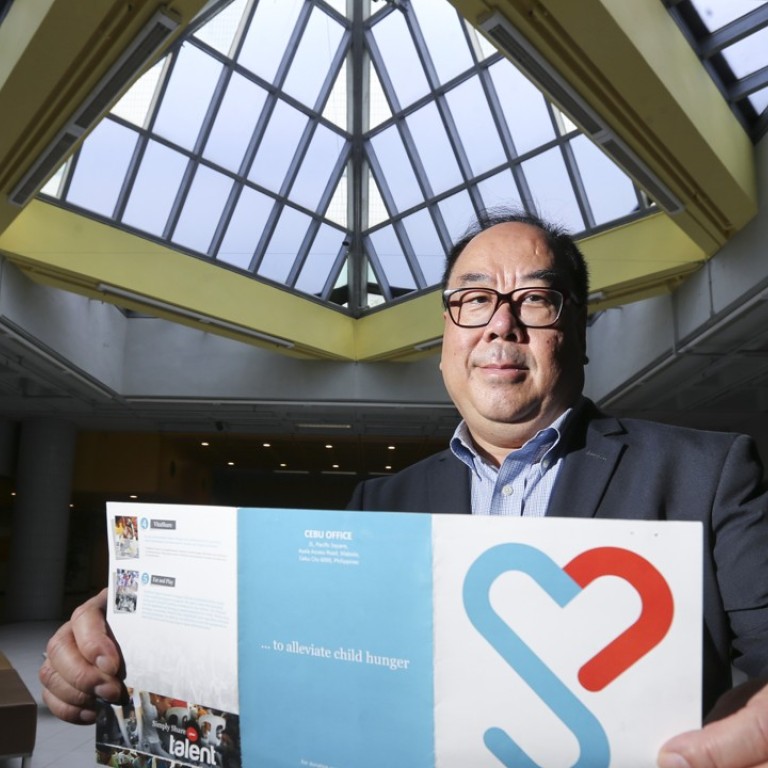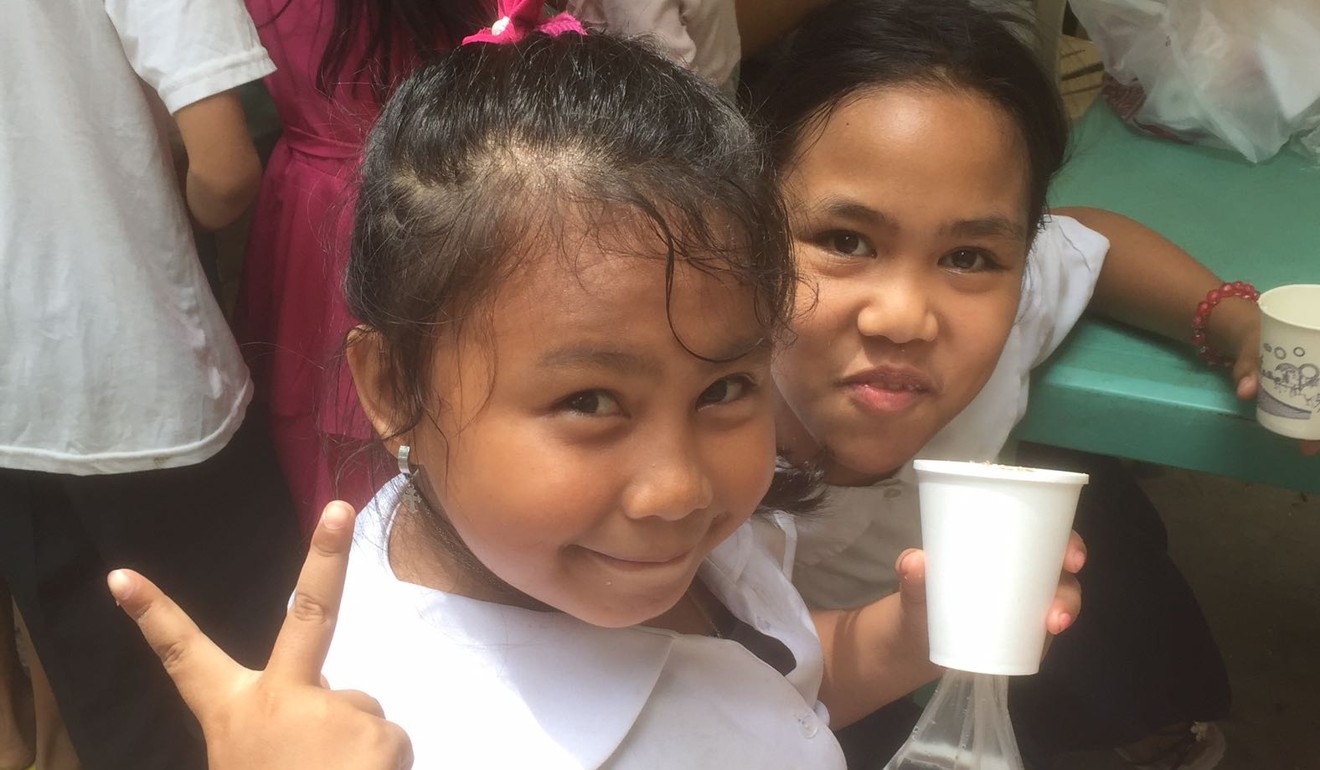
Hong Kong-backed food truck scheme to feed needy children in the Philippines
The Simply Share Foundation hopes to show gratitude for Filipino domestic helpers in Hong Kong by distributing food for 2,000 children in the coming year
A group that feeds 200 children each day in the Philippines is raising funds for mobile kitchens to reach more hungry youngsters.
The aim of the non-governmental organisation is to have three mobile kitchens distributing food for more than 2,000 children in the coming year.
Some seven million children across the country suffer from hunger and malnutrition. Limited access to the right food, lack of education on nutrition, poor health and bad sanitation contribute to the problem.
To, who is a senior professor based between Hong Kong and San Francisco, is leading a workshop on “Strategy and Leadership – for personal and business success”, on Wednesday and Thursday at the Banyan Tree Hotel in Macau. All proceeds will go to the foundation.
One mobile kitchen costs US$45,000, which includes renovation of the vehicle, repairs and administration. To said he is now aiming to raise US$90,000 for two more vehicles.

There are officially 350,000 domestic helpers in Hong Kong, about 194,000 of them from the Philippines. “This is a way of expressing our gratitude to them,” he said.
The foundation was created about three years ago by To, who is originally from England, and a group of professionals from the Philippines, after they started giving individual donations to children in the country.
“So a few years ago, I thought we should do this legally and legitimately by creating a foundation just focused on this area of children who are hungry and need help,” he said.
The group now serves eight communities in Cebu City and the surrounding Visayas region, but wants to expand into other poor areas, such as Mindanao.
To, 61, said malnourished children have priority and follow a food programme of two to three months, which is based on United Nations nutrition guidelines.
The foundation receives referrals from the government and leaders of the community.
“It’s widely known that malnutrition can have an impact on the brain ... Most of these kids are not even going to be able to finish high school,” To said.
The cooks are culinary students and those who distribute the food volunteers.
To, who is doing his fourth PhD, lectures on teaching strategy and leadership at top universities. He has taught at City University and the University of Macau.
He also advises government officials, military leaders, Fortune 500 corporations and high net worth families. All his teaching proceeds currently go to charity.
To said the foundation was not only collecting donations, but also recruiting volunteers.
Regarding the reasons for his work, To said: “I come from a slum in the northwest part of London, from a poor family.
“My father was a refugee from China and my mother was born in England.
“I did not forget where I come from and I know what it is like to feel hungry.”

